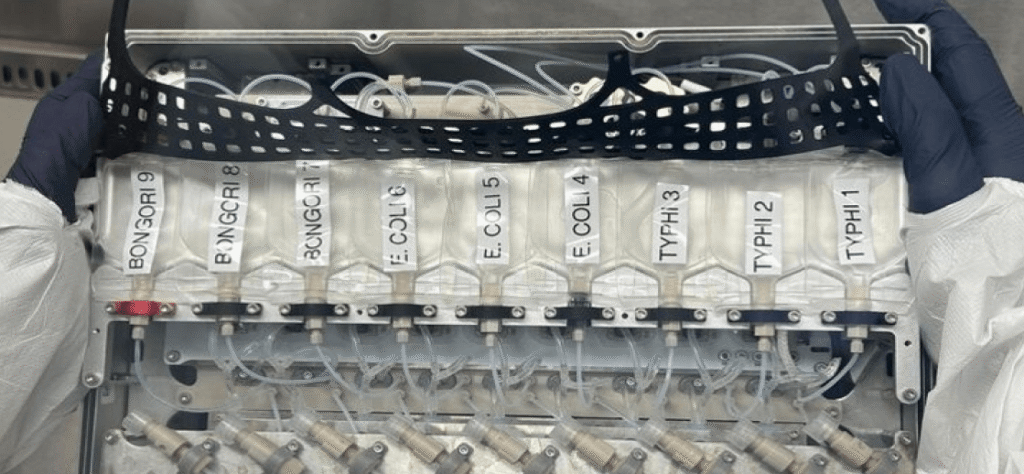Researchers at Sheba Medical Center in Israel have launched a groundbreaking medical experiment to the International Space Station (ISS) to study how space conditions affect disease-causing bacteria. The project, developed by Sheba’s ARC Innovation Center and Infectious Diseases Research Laboratory in partnership with U.S.-based space tech company Space Tango, is part of NASA and SpaceX’s Crew-11 mission. It aims to uncover how microgravity influences bacterial gene expression—especially traits related to virulence and antibiotic resistance.
This is Sheba’s second space-based experiment. The first, conducted in 2021, revealed that bacteria exposed to simulated space conditions were less able to acquire antibiotic resistance through DNA transfer. Those findings, published in Microbiology Spectrum, sparked global interest and laid the foundation for this follow-up study.
In the current experiment, several strains of pathogenic bacteria—including E. coli and Salmonella—are being grown aboard the ISS using a custom-designed biogrowth system that mirrors Earth conditions. Identical samples are being cultivated simultaneously at Sheba Medical Center, allowing researchers to compare how the bacteria behave in space versus on Earth. Once the space-grown bacteria are stabilized and frozen at –80°C, they’ll be returned to Earth for detailed molecular and genetic analysis.
The goal is to systematically map how spaceflight alters bacterial gene expression. Scientists already know that microgravity can change how bacteria grow, express genes, and develop resistance to antibiotics. But this is the first time researchers will be able to analyze those changes at a molecular level in real space conditions. The insights could help improve infection control for astronauts—who are more vulnerable to illness due to stress, radiation exposure, and weakened immune systems during long missions—and also inform new strategies for treating drug-resistant infections on Earth.
According to Prof. Ohad Gal-Mor, head of Sheba’s Infectious Diseases Research Laboratory, the experiment could expand our understanding of how bacteria adapt to extreme environments and lead to better treatments for patients with chronic infections or rare immune conditions. Prof. Eyal Zimlichman, Chief Transformation and Innovation Officer at Sheba, emphasized that pushing the boundaries of medicine sometimes requires going beyond the boundaries of Earth.
This research is part of Sheba’s broader effort to use space science to drive medical innovation. The ARC Space Lab, which designs and launches these experiments, is one of the few medical research facilities worldwide actively exploring how space-based studies can benefit patients on Earth. By studying bacteria in orbit, Sheba hopes to unlock new ways to fight infections and improve health outcomes for people everywhere.
Here’s a brief video that explains more:
Article from Sheba Medical Center: Sheba Launches a Groundbreaking Medical Experiment Into Space

